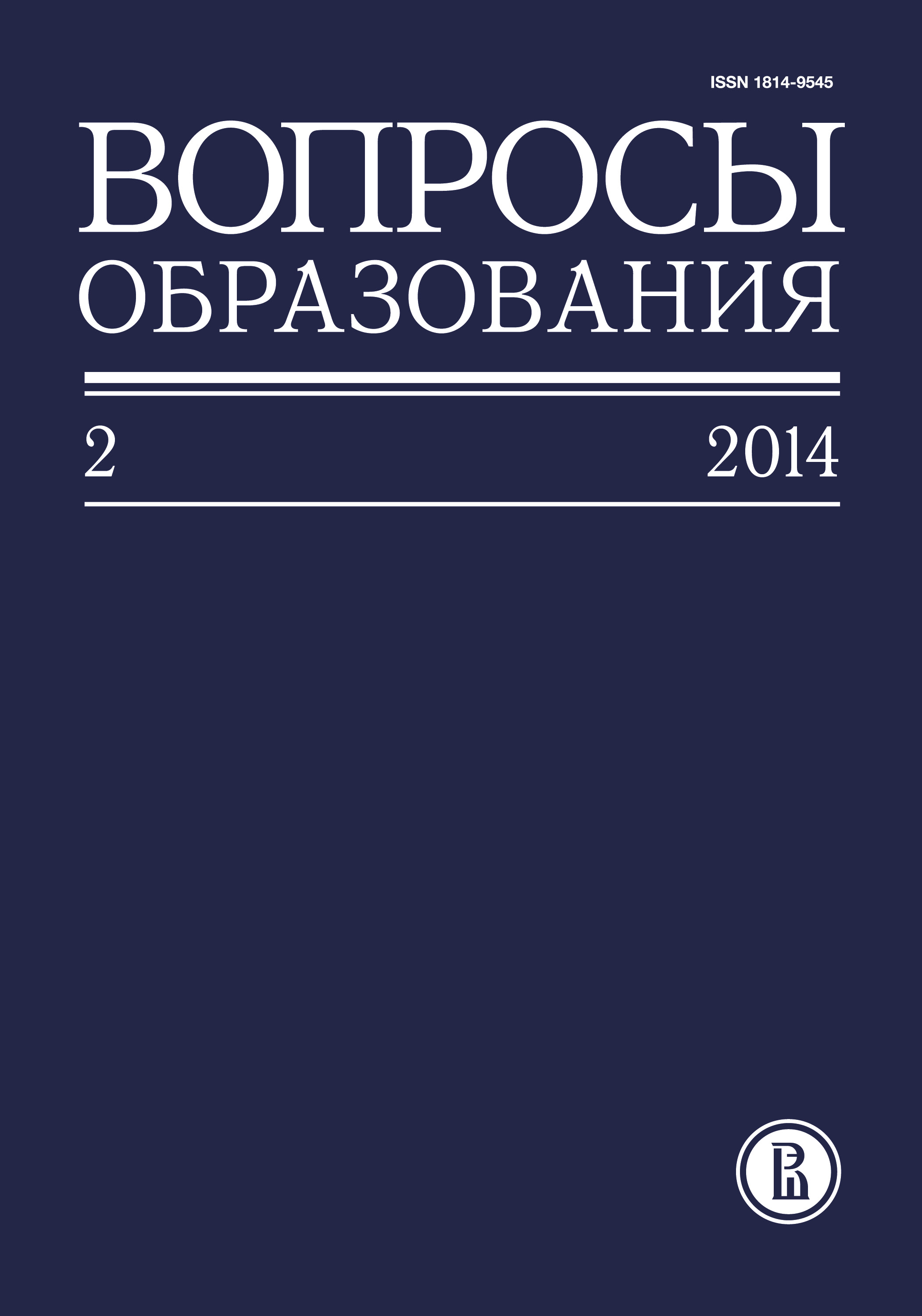Совмещение учебы и работы студентами российских вузов
Аннотация
Влияние качества вузов, финансовых, академических и социально-демографических факторов на вероятность студенческой занятости, а также мотивы выхода студентов на рынок труда исследуется на основании данных опроса старшекурсников российских вузов, проведенного в 2013 г. в рамках проекта «Мониторинг экономики образования». Используются методы дескриптивного анализа и регрессионного анализа: влияние факторов оценивается при помощи логистической модели бинарного выбора (логит-регрессии). Установлено, что наибольший положительный эффект на вероятность совмещения учебы и работы оказывают такие факторы, как обучение в ведущем вузе, обучение в магистратуре, обучение на специальностях, связанных с иностранными языками, математикой и программированием, дизайном, архитектурой и культурологией. Отсутствие финансовой поддержки со стороны семьи, обучение на бюджетных местах и принадлежность к мужскому полу также значимо увеличивают вероятность студенческой занятости. Исследование позволило построить предварительную гипотезу, согласно которой основной причиной совмещения учебы и работы является желание получить опыт работы, причем чаще других работают, по-видимому, более способные студенты. Полученный опыт работы одаренные студенты рассчитывают использовать как дополнительный сигнал об их высокой производительности, который в будущем может принести экономическую отдачу на рынке труда. Эта гипотеза требует проверки.








